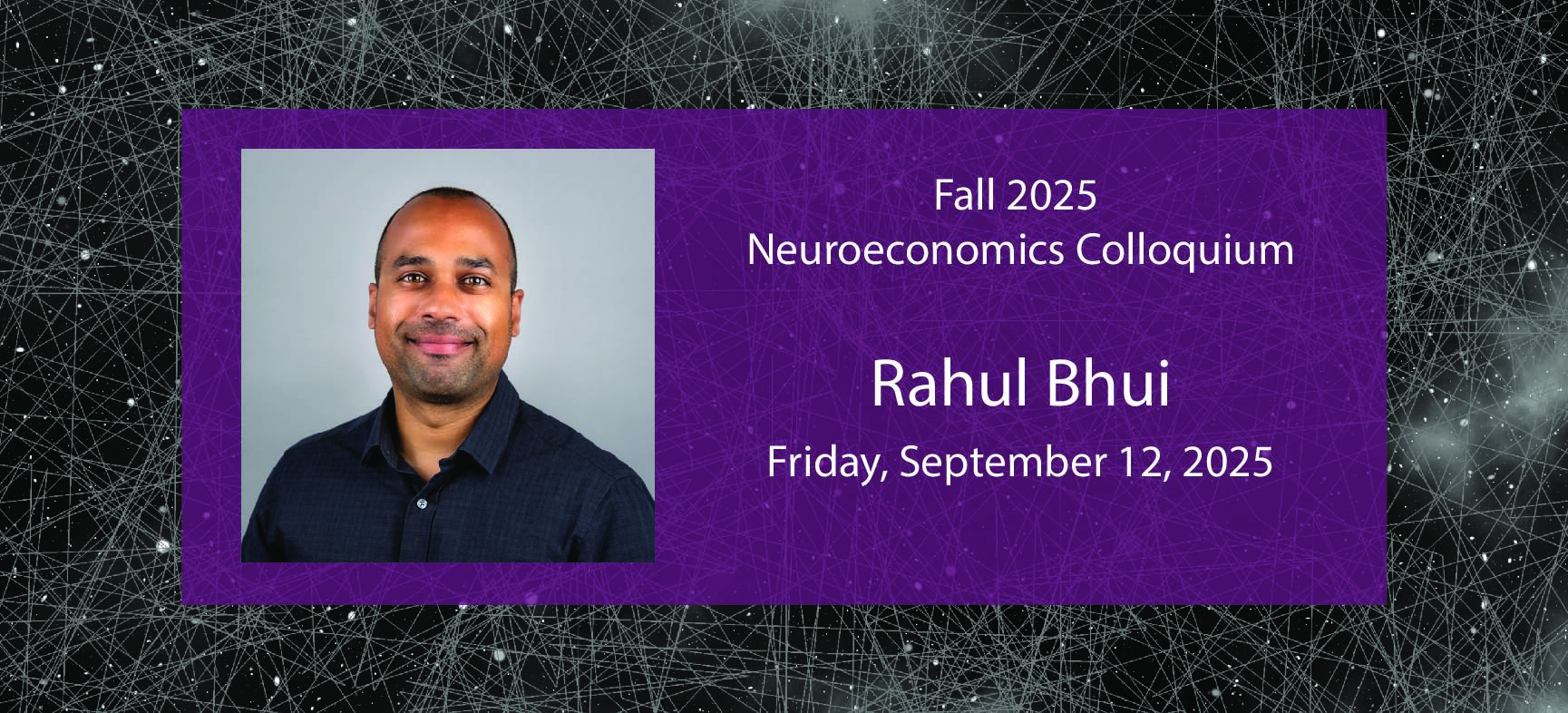
Rahul Bhui
Rahul Bhui
MIT
A rational account of the repulsion effect
NYU Meyer Hall, 4 Washington Pl, room 102
Abstract
The repulsion effect occurs when the presence of an inferior option (the decoy) decreases the attractiveness of the option that dominates it (the target), in puzzling contrast to the attraction effect. In this project, we formally develop and experimentally test a normative account of the repulsion effect. Our theory is based on the idea that the true values of options are uncertain and must be inferred from available information, which includes the properties of other options. A low-value decoy can signal that the target also has low value when both are believed to be generated by a similar process. We formalize this logic using a hierarchical Bayesian cognitive model that makes predictions about how the strength of the repulsion effect should vary with statistical properties of the decision problem. This theory can help account for several documented phenomena linked to the repulsion effect, as well as results from seven new lab experiments. Our results illuminate key drivers of context dependence across both economic and perceptual judgment and sharpen our understanding of when decoys can be detrimental.
Speaker Bio
Rahul Bhui is Associate Professor of Marketing at the MIT Sloan School of Management, and affiliate faculty of the MIT Institute for Data, Systems, and Society. His research combines cognitive science, computational neuroscience, and behavioral economics to reveal the unifying principles behind both rationality and irrationality. He has received the Early Career Award from the Society for Neuroeconomics and the Vernon L. Smith Excellence Award from the Society for Experimental Finance, and has been named a Rising Star by the Association for Psychological Science and one of the Best 40-Under-40 Business School Professors by Poets&Quants. Prior to joining MIT, Rahul was Mind Brain Behavior Postdoctoral Fellow in the Departments of Psychology and Economics at Harvard University. He holds a BA (honours) in Economics from the University of British Columbia, as well as an MS in Behavioral and Social Neuroscience and PhD in Computation and Neural Systems from Caltech.
